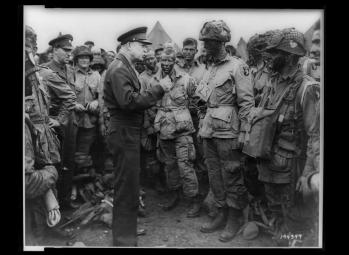I would like to start off by saying this is an awesome site. There are many great items on here that can not be found on other sites with military memorabilia.
(707) 906-3361
The Normandy landings, codenamed Operation Neptune, were the landing operations of the Allied invasion of Normandy, in Operation Overlord, during World War II. The landings commenced on Tuesday, 6 June 1944 (D-Day), beginning at 6:30 am British Double Summer Time (GMT+2). In planning, D-Day was the term used for the day of actual landing, which was dependent on final approval.
The landings were conducted in two phases: an airborne assault landing of 24,000 British, American, Canadian and Free French airborne troops shortly after midnight, and an amphibious landing of Allied infantry and armoured divisions on the coast of France starting at 6:30 am. There were also decoy operations under the codenames Operation Glimmer and Operation Taxable to distract the German forces from the real landing areas.
Supreme Commander of the Allied Expeditionary Forces was General Dwight Eisenhower while overall command of ground forces (21st Army Group) was given to General Bernard Montgomery. The operation, planned by a team under Lieutenant-General Frederick Morgan, was the largest amphibious invasion in world history and was executed by land, sea, and air elements under direct British command with over 160,000 troops landing on 6 June 1944, 73,000 American troops, 61,715 British and 21,400 Canadian. 195,700 Allied naval and merchant navy personnel in over 5,000 ships were involved. The invasion required the transport of soldiers and material from the United Kingdom by troop-laden aircraft and ships, the assault landings, air support, naval interdiction of the English Channel and naval fire-support. The landings took place along a 50-mile (80 km) stretch of the Normandy coast divided into five sectors: Utah, Omaha, Gold, Juno, and Sword.
